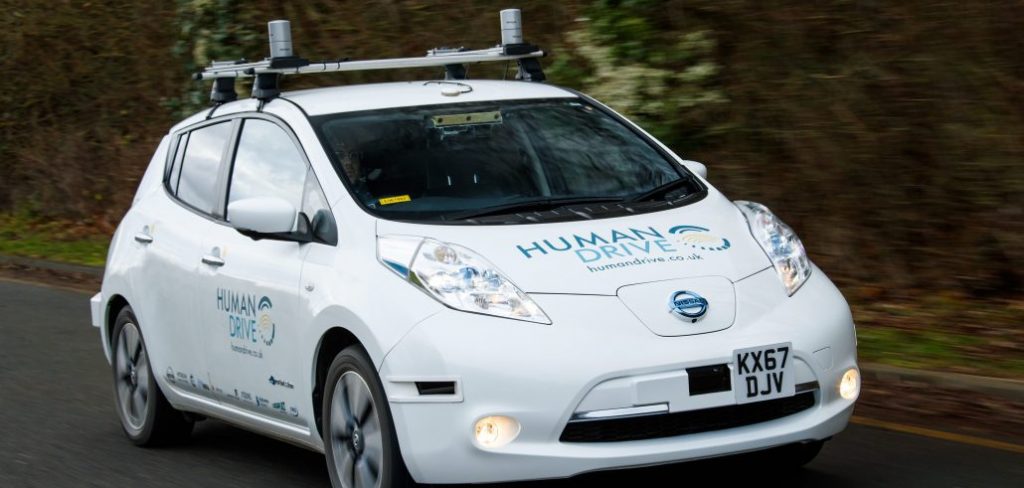In March 2020, the Innovate UK and the Centre for Connected and Autonomous Vehicles part funded collaborative R&D project HumanDrive ended. The project developed an autonomous vehicle which completed a 230-mile drive from Cranfield to Sunderland in November 2019, the UK’s longest autonomous journey to date.
One of the primary outputs from the HumanDrive project was the development of an Advanced Control System (ACS) (by Nissan and Hitachi), that was designed to allow the autonomous vehicle to emulate a natural, human-like, driving style.
During the course of the project, human factors research was carried out by the University of Leeds, Connected Places Catapult and Cranfield University to evaluate the ACS in real-world and simulator-based trials, to gain insights into the perceived naturalness, comfort and safety of the system under evaluation.
These attributes were measured during, and post experiencing, AV driving styles, via think aloud protocols, questionnaires, physiological metrics and real-time participant feedback. The evaluations also considered how personality traits and personal driving style might influence perceptions of AV driving styles.
A white paper examining theses findings has now been released and can be found here.


